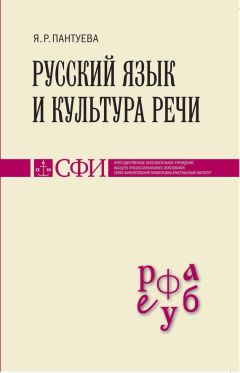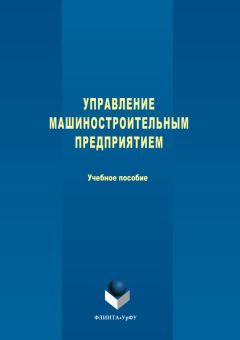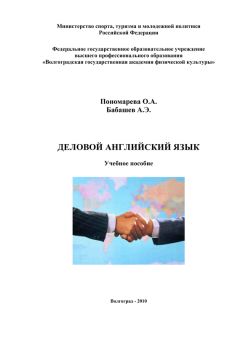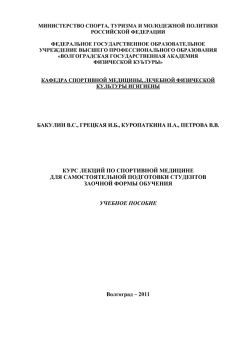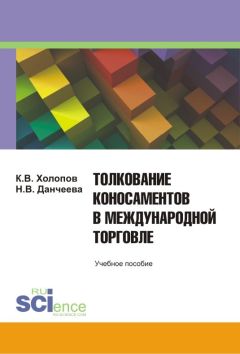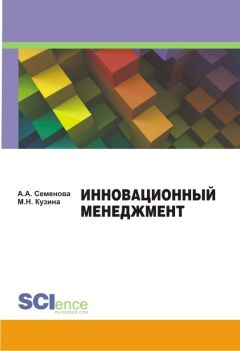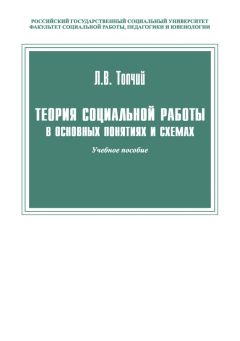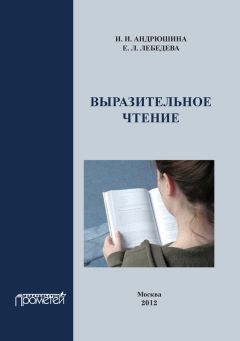Татьяна Бочкарева - Английский язык для студентов заочной формы обучения
Все авторские права соблюдены. Напишите нам, если Вы не согласны.
Описание книги "Английский язык для студентов заочной формы обучения"
Описание и краткое содержание "Английский язык для студентов заочной формы обучения" читать бесплатно онлайн.
Основной целью учебного пособия является совершенствование навыков чтения, перевода и устной речи на английском языке. Пособие предназначено для студентов заочного факультета юридической, экономических и финансово-экономических специальностей.
Text D. Solon (b. 630 – d. 560 B.C.)
Solon, the Athenian statesman, is known as one of the Seven Wise Men of Greece. He ended exclusive aristocratic control of the government, substituted a system of control by the wealthy, and introduced a new and more humane law code. He was also a noted poet.
Unfortunately it was not until the 5th century B.C. that accounts of his life and works began to be put together, mostly on the evidence of his poems and his law code. Although certain details have a legendary ring, the main features of his story seem to be reliable.
Solon was of noble descent but moderate means. He first became prominent in about 600 B.C. The early 6th century was a troubled time for the Athenians. Society was dominated by an aristocracy of birth, who owned the best land, monopolized the government, and were themselves split into rival factions. The social, economic, and political evils might well have culminated in a revolution and subsequent tyranny (dictatorship), as they had in other Greek states, had it not been for Solon, to whom Athenians of all classes turned in the hope of a generally satisfactory solution of their problems. Because he believed in moderation and in an ordered society in which each class had its proper place and function, his solution was not revolution but reform.
Solon's great contribution to the future good of Athens was his new code of laws. The first written code at Athens, that of Draco, was still in force. Draco's laws were shockingly severe (hence the term draconian), so severe that they were said to have been written not in ink but in blood. On the civil side they permitted enslavement for debt, and death seems to have been the penalty for almost all criminal offenses. Solon revised every statute except that on homicide and made Athenian law altogether more humane.
2.2.1.3 Задание 3. Ответьте на вопросы по текстам А, В, С, D
1 Who was the earliest known legal text written by?
2 What issues did the early laws emphasize?
3 Why do you think Hammurabi decided to have his laws carved into a pillar?
4 What spheres of human life were covered by Hammurabi’s code?
5 How do you understand the principle “an eye for an eye and a tooth for a tooth”?
6 In your opinion, were punishments always fair?
7 Why do you think people of different ranks were treated differently by Hammurabi’s code?
8 What does the ancient breek concept of Law comprise?
9 What is the origin and the meaning of the word “draconian”?
10 What was Solon’s great contribution to the future good of Athens?
2.2.2 Тексты для студентов специальностей «Бухгалтерский учет, анализ и аудит», «Финансы и кредит»
2.2.2.1 Задание 1. Прочитайте и запомните следующие слова и словосочетания:
accounting – бухгалтерское дело;
identify – определять;
measure – измерять;
record – записывать;
communicate – передавать (информацию);
economic events – экономические события;
sale of goods – продажа товаров;
payment of wages – выплата зарплаты;
evidence – доказательство; признаки;
relevant (to) – соответствующий ч-л.;
transaction – сделка, операция;
in monetary terms – в денежном выражении;
diary – дневник; order – порядок; ордер;
financial statement – финансовый отчет;
in the aggregate – в совокупности;
treasurer – кассир;
управляющий финансами (корпорации);
cash – наличные деньги;
ratio – относительный показатель;
chart – диаграмма;
account records – учетные записи;
cost – стоимость;
double – entry book keep – двойная учетная запись;
merchandise – товары;
income tax – подоходный налог;
describe – описывать;
data – данные;
annual statement – ежегодный отчет;
user – пользователь;
financial report – финансовый отчет.
2.2.2.2 Задание 2. Прочитайте тексты А, В, С, переведите их письменно
Тext А. What Is Accounting
As a financial information system, accounting is the process of identifying, measuring, recording, and communicating the economic events of an organization (business or nonbusiness) to interested users of the information. The sale of goods, the rendering of services, the payment of wages are examples of economic events. The first part of the process – identifying – involves selecting those events that are considered evidence of economic activity relevant to a particular organization.
Once identified, the economic events (called transactions by accountants) must be measured in financial terms, that is quantified in dollars and cents.
If the event cannot be quantified in monetary terms, it is not considered part of the company's financial information system. The measurement function thereby eliminates some significant events (such as an appointment of a new company president) because they lack measurability in financial terms.
Once measured in dollars and cents, the events are recorded to provide a permanent history of the financial activities of the organization. Recording consists of keeping a chronological diary of measured events in an orderly and systematic order. In recording, the accountant also classifies and summarizes these events.
Тext В. The Development of Accounting Thought
Accounting has a long history. Some scholars claim that writing arose in order to record accounting information. Account records date back to the ancient civilization of China, Babylonia, Greece, and Egypt. The rulers of these civilization used accounting to keep track of the cost of labor and materials used in building structures like the great pyramids.
Accounting developed further as a result of the information needs of merchants in the city-states of Italy during 1400s. In that commercial climate the monk Luca Pacioli, a mathematician and friend of Leonardo da Vinci, published the first known description of double-entry book – keeping in 1494.
The pace of accounting development increased during the Industrial Revolution as the economies of developed countries began to massproduce goods. Until that time, merchandise had been priced based on managers' hunches about cost, but increased competition required merchants to adopt more sophisticated accounting systems.
In the nineteenth century, the growth of corporations, especially those in the railroad and steel industries, spurred the development of accounting. Corporation owners, the stock holders-were no longer necessarily managers of their business. Managers had to create accounting systems to report to the owners how well their businesses were doing.
The role of government has led to still more accounting developments. When the federal government started the income tax, accounting supplied the concept of "Income". Also, government at all levels has assumed expanded roles in health, education, labor, and economic planning. To ensure that the information that it uses to make decisions is reliable, the government has required strict accountability in business community.
Text C. Communication
This identifying, measuring and recording activity is meaningless unless the information is communicated to interested users. The information is communicated through the preparation and distribution of accounting reports, the most common of which are called financial statements. To make the reported financial information meaningful, accountants describe and report the recorded data in a standartized manner. Such data are said to be reported in the aggregate.
Accountants report financial information on a periodic basis, that is, at regular intervals. The frequency of communicating varies according to the needs of the user and the nature of the information reported. For example, the company's treasurer may request daily reports of cash, the sales manager may require weekly reports of sales, and the president may desire monthly reports of operations as a whole. In contrast, annual statements of financial position and results of operations may be suffice for investors and governmental agencies.
The information is reported to the users of financial reports through ratios, percentages, graphs and charts.
2.2.2.3 Задание 3. Ответьте на вопросы по текстам А, В, С
1 Is accounting part of a financial information system?
2 What parts does the process of accounting consist of?
3 What examples of economic events can you give?
4 Identifying involves selecting of economic events relevant to a particular organization, doesn't it?
5 Can all the events be quantified in monetary terms?
6 What events are not considered part of the company's financial information system?
7 Does the accountant only record the measured events in a systematic manner?
8 What else does he do with the measured economic events?
9 Where do accounting records date back to?
10 Why did the rulers of ancient civilization of China, Babylonia, Greece and Egypt use accounting?
11 What was Luca Pacioli?
12 What spurred the development of accounting in the nineteenth century?
2.2.2.4 Задание 1. Прочитайте и запомните следующие слова и словосочетания:
transactions – сделки;
to carry on – проводить;
to provide – обеспечивать;
mutual savings banks – взаимно- сберегательные банки;
lending – предоставление кредита;
loans – займы;
creditworthiness – кредитоспособность;
acceptance – принятие;
transfer – передача, перевод;
deposits – депозиты;
vaults – хранилища;
to store – хранить;
to insure – страховать;
valuables – ценности;
profitable – выгодный;
interest – процент;
percentage return – доход в виде процента;
account debit cards – карты дебета счета;
electronic cash till – банкомат;
computer on-line banking – компьютерные онлайновые расчеты между банками;
clearinghouses – расчетные палаты;
payments – платежи;
income – доход;
savings – сбережения;
yield – доход;
mortgage – ипотека;
facilities – средства;
handling – обработка;
checking account – 1) специальный счет, с которого снимаются деньги по чекам клиента; 2) счет, позволяющий в любой момент вносить и снимать деньги (до востребования);
rate of interest – процент, процентная ставка, норма процента;
liabilities – задолженность;
assets – актив (баланса);
retail bank – банк, занимающийся обслуживанием мелкой клиентуры;
underwriter – гарант размещения (займа, акций и т.п.);
issue of shares – выпуск акций; intermediary – посредник;
merger – слияние, объединение (коммерческое, промышленное и т.п.);
acquisition – 1) получение; 2) приобретение (действие); сбор;
building society – жилищно-строительное общество;
management buy-outs – выкуп права на управление.
2.2.2.5 Задание 2. Прочитайте тексты А, В, переведите их письменно
Text A. What Is Banking
Banking is the transactions carried on by any person or firm engaged in providing financial services to consumers or businesses.
For these purposes there exist commercial banks, central banks, savings banks, trust companies, finance companies and merchant banks. Banking: consists of safeguarding and transfer of funds, lending or facilitating loans, guaranteeing creditworthiness and exchange of money. In other words, banking is the acceptance, transfer, and creation of deposits. The depository institutions are central banks, commercial banks, savings and loan associations, building societies, and mutual savings banks.
Safeguarding and transfer of funds
Vaults and safes are the means for safeguarding of funds. Money is physically stored there. These physical deposits are in most cases insured against theft, and against the bank being bankrupt and unable to repay the funds. In some banks customers can use safety deposit boxes for valuables. To save money in banks is profitable because bank customers receive interest given on savings accounts, a percentage return on the bank's investments with the money.
Transfer of funds can be handled through written instruments: contracts, cheques, or direct transfers performed electronically. Nowadays banks provide the customers with additional ways of gaining access to their funds and using them. These are credit cards and account debit cards, electronic cash tills, computer on-line banking, and other services.
Automated clearing houses perform similar services for business customers by handling regular payments, such as wages, for a company banking with the bank.
Longer-term schemes for providing regular income on savings are often offered through trust funds or other investment schemes.
Lending and loans
Loans to bank customers are drawn on the funds deposited with the bank and yield interest which provides the profits for the banking industry and the interest on savings accounts. These loans may take the form of mortgages or other policies. Banks may guarantee credit for customers who wish to obtain loans from other institutions. They also provide foreign exchange facilities for individual customers, as well as handling large international money transfers.
Text B. Banks
Banks are organizations that carry out the business of banking, taking deposits and then using those deposits to make loans. In essence, a bank aims to make a profit by paying depositors a lower rate of interest than the rate the bank charges borrowers. In accounting terms, deposits are considered liabilities (because they have to be repaid), and loans are considered assets.
Подписывайтесь на наши страницы в социальных сетях.
Будьте в курсе последних книжных новинок, комментируйте, обсуждайте. Мы ждём Вас!
Похожие книги на "Английский язык для студентов заочной формы обучения"
Книги похожие на "Английский язык для студентов заочной формы обучения" читать онлайн или скачать бесплатно полные версии.
Мы рекомендуем Вам зарегистрироваться либо войти на сайт под своим именем.
Отзывы о "Татьяна Бочкарева - Английский язык для студентов заочной формы обучения"
Отзывы читателей о книге "Английский язык для студентов заочной формы обучения", комментарии и мнения людей о произведении.






